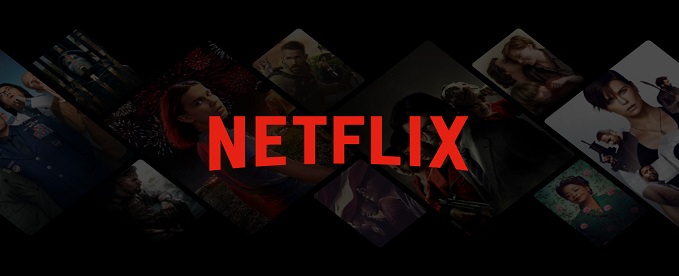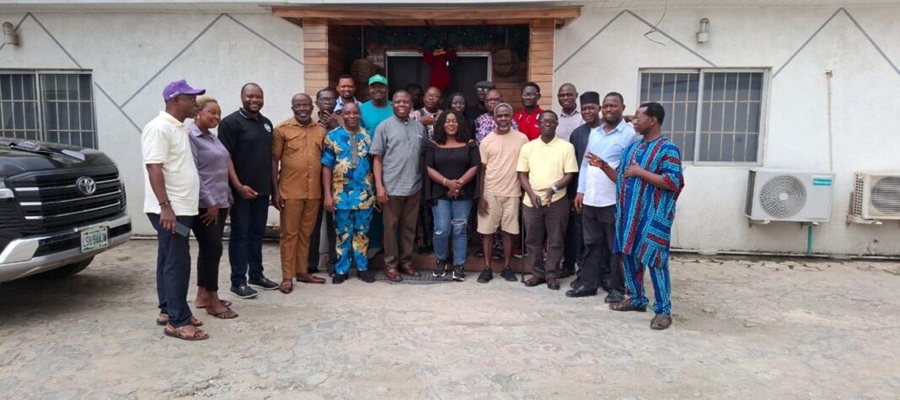Broadcasting
Netflix Hikes Subscription Fee by 40 Percent, Nigerians now to Pay N7,000 Per Month

Nigerians will now be paying N7,000 per month, as video streaming platform, Netflix, has once again increased its subscription prices with its Premium Plan going up by 40 per cent to N7,000 from N5,000 per month.

Recall that Netflix has been raising the rates of its Basic and Premium plans starting in October 2023 in several major areas across the world, such as the United States, the United Kingdom, and France.
The streaming platform stated earlier in April that the price of its Premium Plan in Nigeria would increase to N5,000 from N4,400.
Simultaneously, the Basic Plan stayed at N2,900, and the Standard Plan was raised from N3,600 to N4,000.
At the time, Netflix said the price adjustment was part of a broader strategy to revise its subscription fees across various regions.
The changes, according to the company, were aimed at accelerating its revenue and earnings growth, following a pattern of periodic price hikes to support the expansion of content offerings.
The latest price increment makes it the second price adjustment by the platform within the space of three months in Nigeria, having implemented a price increment earlier in April this year.
According to the price update on the company’s website, the Standard plan subscription, which is popular among Nigerian subscribers for its HD quality and multi-screen viewing options, has been increased from N4,000 to N5,500. This represents a 37.5 per cent increment.
Broadcasting
Tim Akano Recounts 20-Year Growth, Media Support at NITRA End-of-Year Meet

Mr. Tim Akano, New Horizons Chief Executive Officer, took centre stage at the Nigerian Information Technology Reporters’ Association (NITRA) annual end-of-year meeting on Thursday, December 18, 2025, recounting the company’s remarkable growth and reaffirming free IT training for journalists.

Tim Akano, New Horizons Chief Executive Officer, in a group photograph with NITRA Members
Speaking directly to IT media members at the company’s training facility in Lagos, Akano acknowledged the critical role journalists played in supporting New Horizons during its formative years two decades ago.
He detailed how the firm evolved from a handful of staff to one of Africa’s leading ICT skills training organisations, now employing about 500 staff across multiple training centres nationwide.
Akano Spotlights Youth Training, University Partnerships
Akano highlighted that New Horizons has trained over 500,000 youths, particularly tertiary institution students, equipping them with practical IT skills essential for Nigeria’s digital economy.
He announced recent partnerships with universities, including a new agreement with Afe Babalola University, to scale hands-on training programmes for students.
“This growth would not have been possible without the media’s support in documenting our journey,” Akano stated, pledging continued free IT skills training for media members to remain competitive in the evolving digital landscape.
Reciprocal Support Defines Long-Standing Partnership
The venue hosting the NITRA meeting underscored Akano’s generosity; NITRA Secretary Chidiebere Nwankwo secured the free facility after contacting him—a gesture consistent with New Horizons hosting multiple association events and training IT journalists since its inception 20 years ago.
Participants shared personal testimonies of Akano’s support, including veteran journalist Aaron Ukodie, whose daughter—an Accounting graduate from the University of Johannesburg—received NYSC placement and IT scholarship at New Horizons.
The Guardian’s Yemi Adeyemi recounted Akano accommodating his editor’s child for mandatory IT training after other firms declined.
Members praised Akano’s commitment to human capital development as evidence of deep appreciation for the media community that chronicled New Horizons’ success over two decades.
Broadcasting
NIMC rolls out Pre-Enrolment Portal for seamless NIN registration

National Identity Management Commission (NIMC) has launched the NIMC Pre-Enrolment Portal to revolutionise the National Identification Number (NIN) enrolment process, enabling applicants within Nigeria and in the Diaspora to capture biodata online prior to biometric verification at enrolment centres.

NIMC
Accessible via penrol.nimc.gov.ng, the platform allows users to fill enrolment forms, schedule appointments, upload supporting documents securely, and manage personal details directly, thereby slashing congestion, minimising wait times, boosting data accuracy and enhancing overall service efficiency at centres nationwide.
NIMC Director-General and CEO, Engr. (Dr) Abisoye Coker-Odusote, spearheaded the initiative as part of the Commission’s technology-driven strategy to fortify institutional performance, aligning with President Bola Ahmed Tinubu’s Renewed Hope Agenda that emphasises digital transformation, efficient public service delivery and inclusive national development.
Dr Kayode Adegoke, Head of Corporate Communications, highlighted key benefits including simplified biodata handling, confidential data protection through robust security measures, reduced physical centre visits and heightened operational effectiveness, urging all prospective enrollees to adopt the portal for a faster, citizen-friendly experience.[conversation_history]
The move underscores NIMC’s mandate under the NIMC Act No. 23 of 2007 to manage the National Identity Database, issue NINs and foster a reliable digital identity ecosystem vital for national planning, with users advised to complete pre-enrolment online before heading to selected centres for biometrics.
Broadcasting
MultiChoice Talent Factory Calls for Entries Into Fully Funded Film Training Programme

MultiChoice Talent Factory (MTF), a Pan-African film and television training institution, has announced the opening of applications for its 2026 intake.

MultiChoice
The fully funded programme is open to African graduates aspiring to become directors, filmmakers, scriptwriters, producers and storytellers.
According to MultiChoice, the nine-month accredited curriculum combines online learning with intensive in-person training, and is designed to balance theoretical knowledge with practical immersion.
MTF academies are located in Kenya, Nigeria and Zambia, and serve aspiring filmmakers from 14 African countries. Since its inception in 2018, the initiative has trained 296 filmmakers, with graduates producing more than 42 movies aired on DStv, GOtv and Showmax platforms.
Organisers said alumni of the programme have gone on to establish over 50 production companies, while many continue to work within the MultiChoice ecosystem.
Graduates have also won accolades at the Africa Magic Viewers’ Choice Awards, Kalasha Awards, Uganda Film Festival and Women in Film Awards.
Applications for the 2026 intake close on Feb. 27, 2026. Interested candidates can visit https://apo-opa.co/3XW53oE for programme requirements.

 News2 days ago
News2 days agoUS Begins Partial Visa Ban on Nigerians January 1

 News2 days ago
News2 days agoDPLAN Threatens NDPC with Legal Action for Setting aside $32.8m Meta Fine

 E-Financial2 days ago
E-Financial2 days agoNOVA Bank Opens Regional Office in Owerri

 News2 days ago
News2 days agoGlo Extends Christmas Greetings, Urges Unity and Care for Others

 E-Financial2 days ago
E-Financial2 days agoNaira Stability, Lower Borrowing Costs Expected in 2026 — CBN Survey

 E-Business2 days ago
E-Business2 days agoGalaxy Backbone Tops FG’s Website Performance Ranking

 E-Financial1 day ago
E-Financial1 day agoFIRS says NIN, CAC Numbers to Serve as Tax IDs from 2026

 General News2 days ago
General News2 days agoBanks warn customers against public Wi-Fi for banking amid festive fraud surge



























